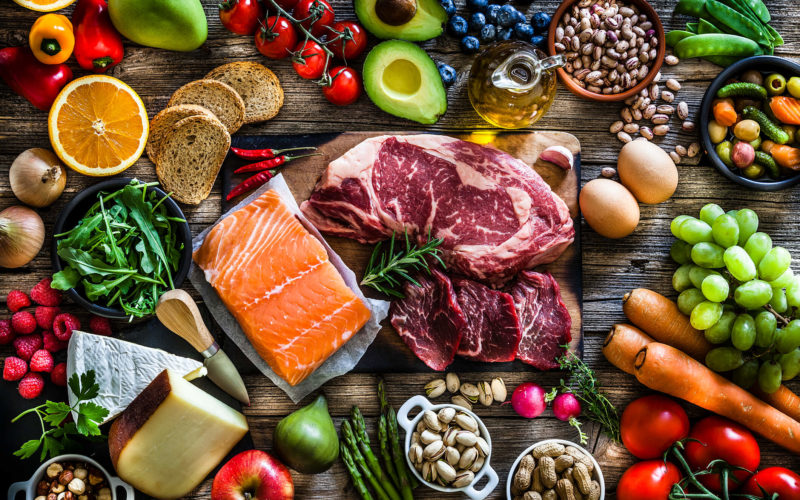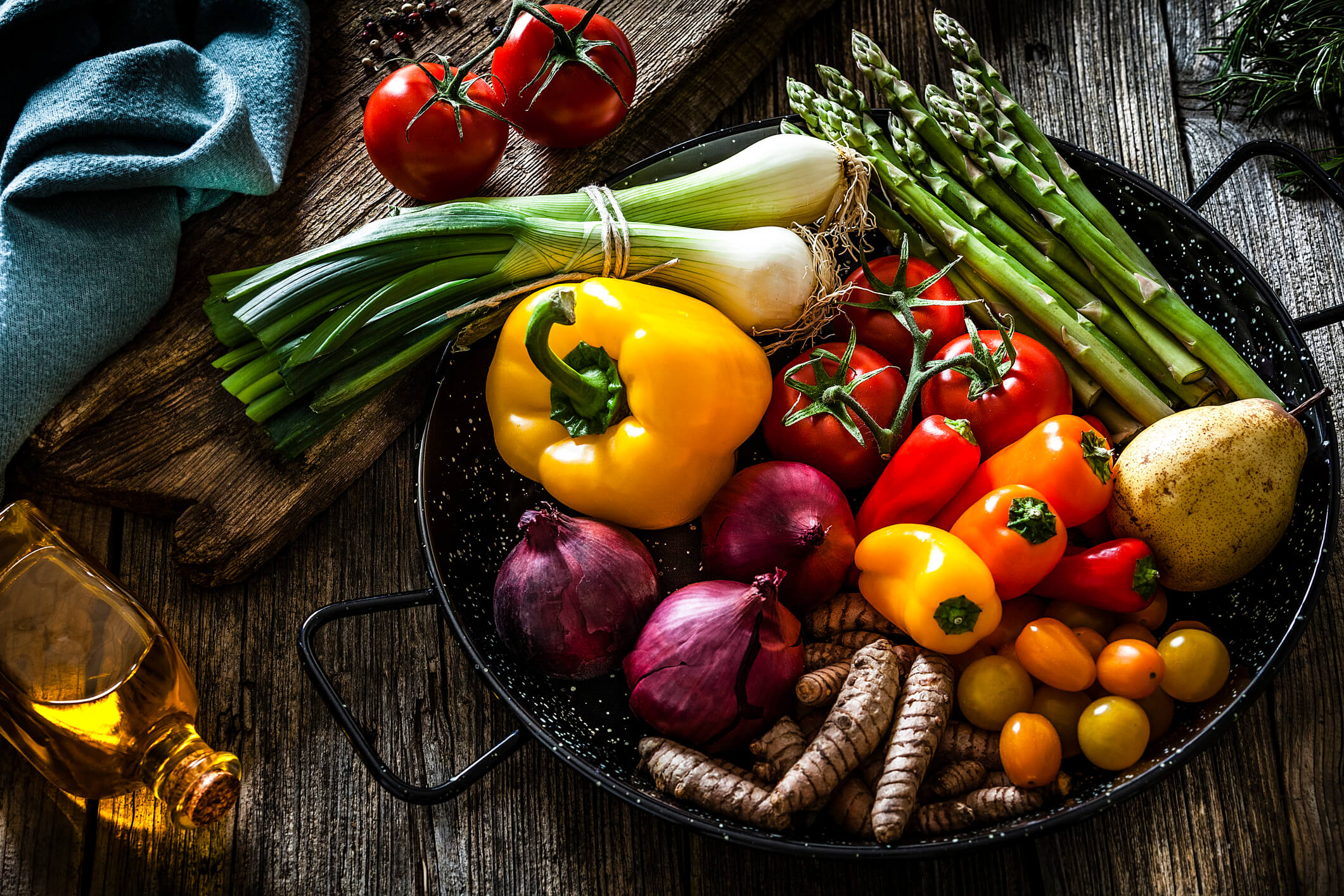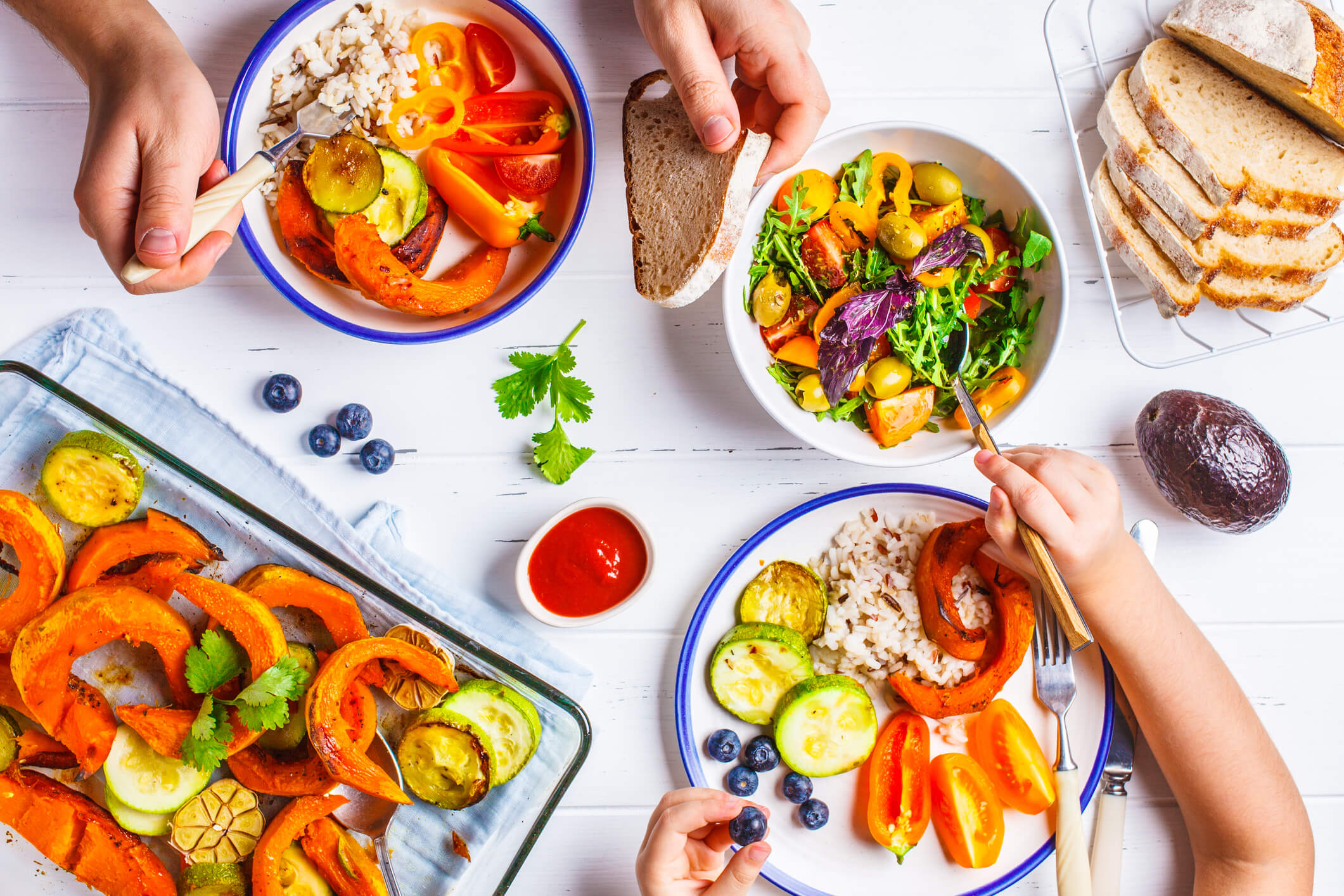Type of Organic Food and & Benefits of Buying Organic

Organic food has been a major trend with farmers and consumers alike for the past decade. These days, you can buy organic food in just about every grocery store. But many people don’t even know exactly what organic food is. Let’s dig into the five main types of organic food and the benefits they can bring!
What is Organic Food?
In order to receive a USDA organic label, produce must limit pesticide use to a certain level and only certain types of pesticides may be used. Other organic foods like dairy and meat must be produced without hormones or antibiotics, as relevant. While you can’t know exactly where it’s been and how it’s been grown, organic food is the second-best option to growing your own produce.
Food grown non-organically is referred to as conventionally grown. Conventional food may contain pesticides under a more liberal legal limit. Conventional dairy and meat may be produced using USDA-approved antibiotics and hormones.
Types of Organic Food
When you think of organic food, your mind probably goes to fruits and vegetables first. While they may be the most common organic offerings, there are also benefits to eating organic dairy, meat, fish, and seafood. All of these types of organic food are readily available in grocery stores.
Organic Fruits
Fruit is one of the most common types of organic food. Conventional fruit tends to have a heavy pesticide residue, which makes them a good candidate for choosing organic.
Since insects are attracted to sweet, fruity smells, don’t expect your organic fruit to look “perfect.” While farmers will choose the best produce to sell, the absence of pesticides means that they may have blemishes or marks on their skin. However, they will taste just as good if not better than conventional fruit.
Organic Vegetables
Vegetables are another common organic purchase. Since their peels and skins are often eaten, they are directly subjected to pesticide sprays. This means that eating organic vegetables can make a big difference in the amount of pesticide residue you and your family are exposed to.

Much like with fruit, organic vegetables may have imperfections in their shape or skin, but they are just as delicious (if not more!) on the inside.
Organic Dairy
Organic dairy has become popular because it contains more Omega-3s, but some doctors and nutritionists say the levels are insignificant in the grand scheme of things. They suggest that the real value of organic milk, yogurt, and cheese is that the cows they come from have not been treated with any hormones or antibiotics.
Buying organic dairy can also benefit the environment, as it has a smaller carbon footprint and reduces pesticides that can make their way into the air and water.
Organic Meat
Organic meat comes from animals that have not been fed hormones or treated with pesticides or antibiotics. Since the animals are not given hormones that cause them to grow at unnatural rates or in unnatural ways, organic meat tends to be leaner and have a better texture and taste.
Having to keep the meat antibiotic-free means that the animals are likely given more space to roam and kept in smaller quantities. This reduces the spread of diseases, which means less chance of food-borne illness for you and your family. All of these factors contribute to making meat an important type of organic food.
Organic Fish & Seafood
There is some controversy about what makes fish and seafood organic. Typically, “organic” means that the food has not been treated with pesticides, antibiotics, or hormones. But when it comes to wild fish and seafood, it is hard to be sure that they have not had contact with any of those things.
Farm-raised fish are fed a very specific diet to help them breed more efficiently, which isn’t in line with organic philosophy. So, the general consensus is that wild-caught seafood and fish is as close to organic as it gets.
The Dirty Dozen and Clean 15 For 2023
If you’re watching your weekly grocery budget, you may not be able to choose organic for every item you need. Luckily, the Environmental Working Group (EWG) releases two lists each year that help you decide which produce is best to buy organic: the dirty dozen and clean 15.
Dirty Dozen
The “dirty dozen” refers to the 12 fruits and vegetables that have the most pesticide residue when grown by conventional farmers. While all produce has to pass a legal limit for pesticide use, these fruits and vegetables should be prioritized when buying organic.
Here is the EWG’s most recent dirty dozen organic foods list:
- Strawberries
- Spinach
- Kale, Collard & Mustard Greens
- Peaches
- Pears
- Nectarines
- Apples
- Grapes
- Bell & Hot Peppers
- Cherries
- Blueberries
- Green Beans
Clean 15
The EWG also issues a “clean 15” list each year, which lists out the 15 fruits and vegetables with the least pesticide residue. While they may contain some pesticides, they are generally considered lower priorities for buying organic. Many of them also have hard skins or rinds that provide protection from pesticide sprays.
Here is the EWG’s most recent clean 15 organic foods list:
- Avocados
- Sweet corn
- Pineapples
- Onion
- Papaya
- Sweet Peas (frozen)
- Asparagus
- Honeydew Melon
- Kiwi
- Cabbage
- Mushrooms
- Mangoes
- Sweet Potatoes
- Watermelon
- Carrots
Organic Foods Pros and Cons
Unless you have an unlimited budget and endless access to local, organic food, you’ll have to decide which foods you’ll buy organically and which you’ll buy conventionally-grown. Here are some of the organic food’s pros and cons to weigh when making your decisions.
The Benefits of Eating Organic Foods
There are a number of benefits to buying organic food:
- No pesticides, antibiotics, or hormones
- Can be more nutrient-rich
- Generally fresher in taste
- Better for the environment
The Drawbacks of Eating Organic Foods
There are also a few drawbacks to weigh when you decide to buy organic food:
- Higher cost
- Limited availability (either in variety or location)
- May have a shorter shelf-life due to fewer preservatives
Should Kids Eat Organic Foods?
When setting a grocery budget, many families wonder if they should buy organic food for their children. While there are hundreds of studies that seem to prove why you should or shouldn’t buy organic foods for your children, there are a few things to keep in mind.
- If your child is a picky eater, consider only buying the foods you know they love organically. If they’re trying a type of food for the first time, buy conventionally to save a little money.
- If your child has food sensitivities or allergies, buying organic can be a good idea. It controls many factors in farming so you truly know what you are eating.
- Buying organic foods can be a good way to teach your children about the effects of farming on the environment.

That being said, many doctors and nutritionists emphasize the “more is more” principle. While local, organic produce is ideal, it is more important that your children eat a wide variety and large quantity of produce.
If your budget allows for both quality and quantity, you can buy organic foods regularly. But if your budget is more limited, you may prefer to stick to buying the dirty dozen organically and purchasing the rest of your groceries conventionally.
Hungry for some fresh, local, organic produce? Order online for pick-up or delivery from Stauffers of Kissel Hill!

